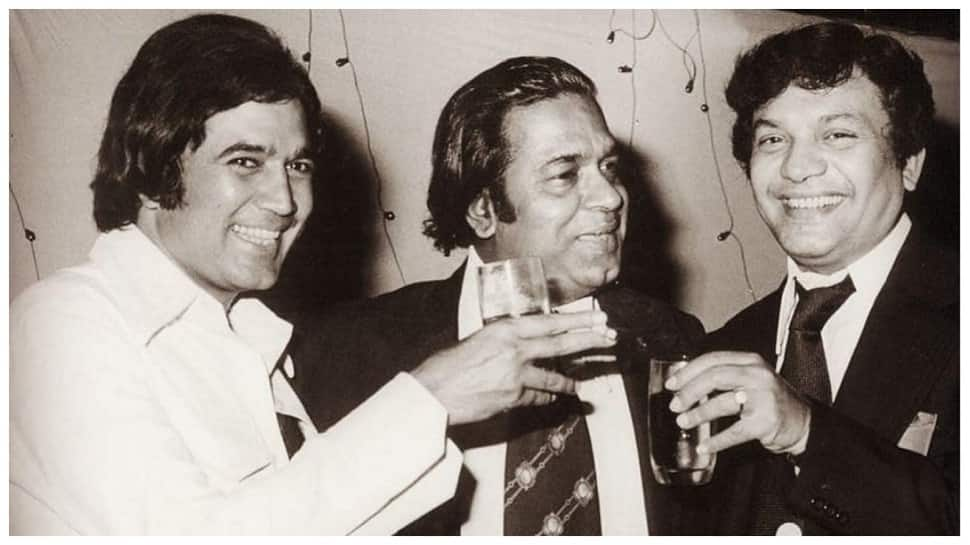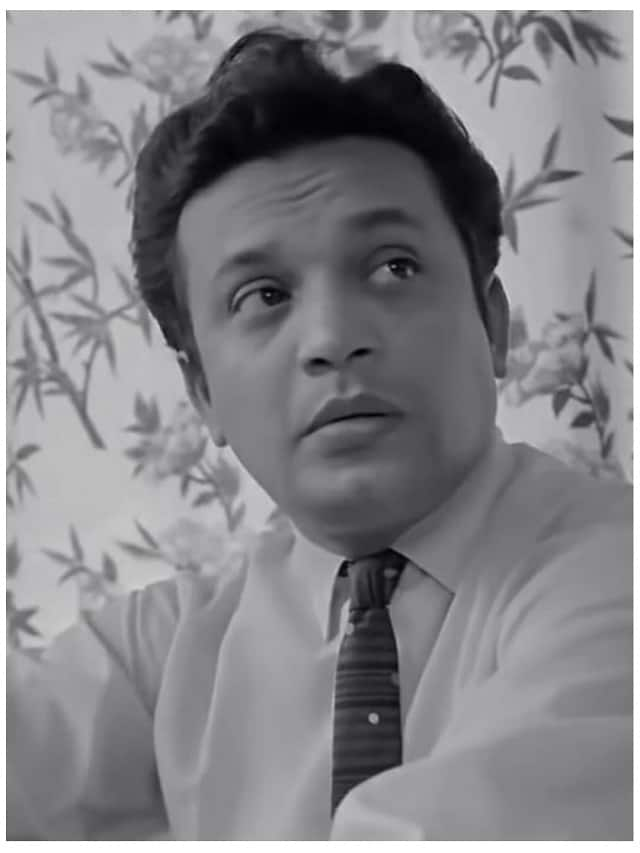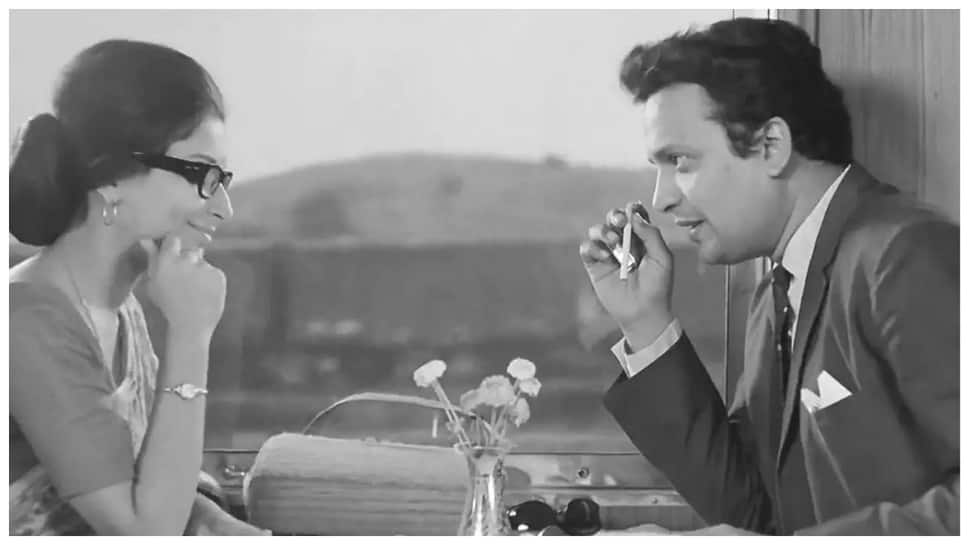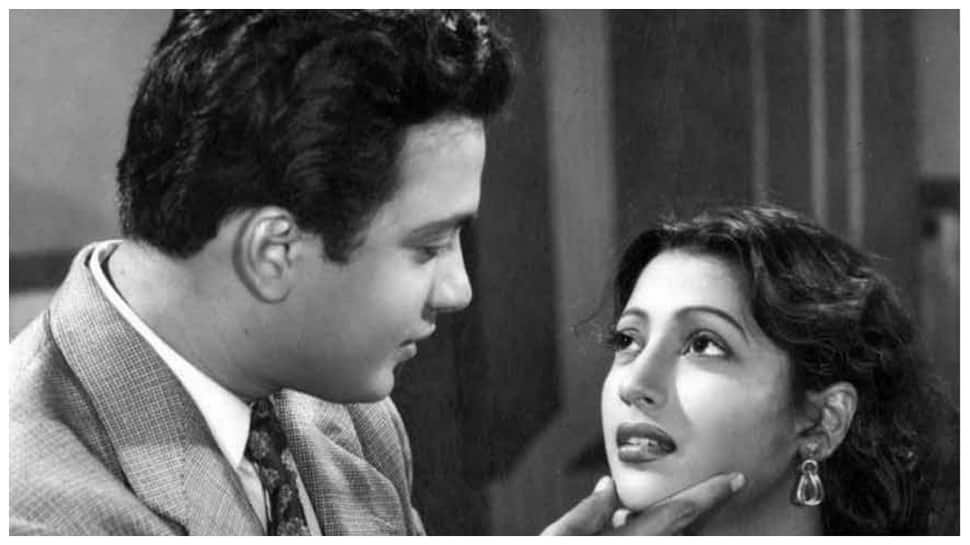Zindagi Badi Honi Chahiye Lambi Nahin: Iconic Lines That Suit A Babumoshai Who Became An Unparalleled Superstar Of Bengali Cinema, Whose Memories Have Not Faded In 43 Years
Uttam Kumar Death Anniversary: One who started out as a clerk but went on to become an actor, a celebrity, an icon, a legend, and even a demigod. Satyajit Ray once remarked of Uttam Kumar: "There is none like Uttam, and there will never be anyone to replace him. He was and is unparalleled in Bengali, even Indian cinema."
- Uttam Kumar passed away on July 24, 1980, yet his memories have not faded in 43 years.
- Whatever role he performed, the man was so magnetic that only his performance mattered.
- Uttam Kumar is the only name recognized in Bengali cinema as the real 'Mahanayak' (Great Actor).
Trending Photos
) Mahanayak Uttam Kumar
Mahanayak Uttam Kumar Uttam Kumar Mahanayak: From North to south, east to west, every film industry has had a superstar—that one performer who outshines everyone else. In Bollywood, actors like Dilip Kumar, Raj Kapoor, Dev Anand, Rajesh Khanna, Amitabh Bachchan, and Shah Rukh Khan have appeared; in Tamil and Telugu films, actors like Rajnikanth, Kamal Hassan, N.T. Rama Rao, and others have. However, Uttam Kumar is the only name recognized in Bengali cinema as the real 'Mahanayak' (Great Actor).
For three decades, Kumar ruled the Bengali film industry, collaborating with masters like Satyajit Ray, Tapan Sinha, Nirmal Dey, Niren Lahiri, and others. Uttam Kumar passed away on July 24, 1980, yet his memories have not faded in 43 years. Millions of his admirers still obey him in their hearts. Whatever role he performed, the man was so magnetic that only his performance mattered. Despite the fact that Uttam lacked the grandeur of Dilip Kumar or the skill of Soumitra Chatterjee, the public nevertheless worshipped their hero.

Uttam Kumar: Early Life
Uttam Kumar was born as Arun Kumar Chattopadhyay on September 3, 1926, into a lower middle-class family in Ahiri Tola, North Kolkata. He had two younger brothers named Barun Kumar and Tarun Kumar, as well as a younger sister named Putul, who passed away before she should have. In Kolkata's Metro Cinema Hall, his father worked as a film operator. Girish Mukherjee Road was home to the entire family.
Uttam Kumar: Theater Days
Uttam began his career in theater, like many other actors of his time. The family-run theater company Suhrid Samaj provided young Uttam with an appropriate starting point. A small group that produced a number of amateur productions served as Uttam's primary source of film-related knowledge. Uttam missed several of his study sessions because of the theatrical pursuits he developed. Uttam spent most of his time creating things, from the occasional drawing to creating posters for his theater group's productions. In fact, his intense participation in theater led him and his companions to create the Lunar Club. Although Uttam's parents were concerned about his academic performance, they never used harsh punishment to rein him in. Evidently, his father recognized a future performer in his son!

Uttam Kumar: Early Failures
Uttam joined the Kolkata Port Commissioner office in the cash department after graduating from college in 1945 and began earning a monthly salary of Rs 275. He kept his nights free to watch theater performances at Rang Mahal, Minerva, and Star while working throughout the day. After a few years of working in theater and Port Trust, Uttam Kumar decided to try his luck in movies. With the Hindi film "Maya Dore," which was unable to be released, he made his film debut in 1947. Under the name Arun Kumar Chatterjee, he made his debut in the 1948 Nitin Bose-directed film Drishtiheen. The following year, under the new name of Uttam Chatterji, he made an appearance as a hero in the movie "Kamona" (1949). Later, he adopted the new name, Arun Chatterjee. In the end, he adopted the name Uttam Kumar after appearing in the 1951 movie "Sahajatri." He continued his employment at Port Trust at the same time. He delivered back-to-back failures in his early career, earning the nickname "Flop Master General" in the industry. His early years were not quite smooth.
Uttam Kumar: The 'Mahanayak'
Nirmal Dey's 1952 film "Basu Paribar," produced by MP Productions, was Uttam's first commercially successful effort. He left his position with the Port Trust in the meantime and concentrated completely on his film career. The same production handled the release of his second movie, "Sharey Chuattar," which was once again directed by Nirmal Dey in 1953. But in the 1954 film "Agni Parikshya," Uttam Kumar would play his first iconic role. In "Nayak" (1966), starring Sharmila Tagore, Uttam and Satyajit Ray worked together for the first time. Notably, 10 years before, Ray asked Uttam Kumar about playing Sandip, the villain, in his film "Ghare Baire," but Uttam graciously denied the offer because he wanted to maintain his reputation as a hero.

Uttam-Suchitra: Evergreen Couple
When discussing evergreen couples onscreen, you cannot forget the enduringly popular love duo Uttam Kumar and Suchitra Sen. The magnetism and star power of Bengali cinema's black-and-white era came from Uttam and Suchitra. The jodi was revered as the embodiment of passion and enduring love. Jodi's cinematic appearance was distinguished by passion and melancholy. The iconic Bengali films "Priyo Bandhabi," "Saptapadi", "Har Mana Har," "Nabarag," "Kamallata," "Grihadaha," "Uttar Phalguni," and "Sare Chuattor" by Uttam and Suchitra heralded the dawn of a new era in Bengali filmmaking. Without a doubt, Uttam Kumar and Suchitra Sen were the most popular acting duo in Bengali cinema. Suchitra Sen appeared in 60 films, 30 of which featured Uttam Kumar.

Uttam Kumar Death
As an actor, producer, director, screenwriter, singer, and composer all in one, Uttam was a one-man institution. With his tragic passing, Bengali cinema's heyday came to an end. During the 1967 filming of Ray's "Chririyakhana," Uttam experienced his first heart attack. His health began to deteriorate with the failure of "Chhoti Si Mulaqat" (1967), and he experienced two further attacks. On July 23, 1980, Uttam experienced another cardiac problem while filming "Ogo Bodhu Sundari." At midnight, he suffered a severe heart attack and was sent to the hospital, where five cardiologists came to examine him. In July 1980, at the age of 53, he passed away after 16 hours at 9:35 p.m.
One who started out as a clerk but went on to become an actor, a celebrity, an icon, a legend, and even a demigod. Satyajit Ray once remarked of Uttam: "There is none like Uttam, and there will never be anyone to replace him. He was and is unparalleled in Bengali, even Indian cinema."
Stay informed on all the latest news, real-time breaking news updates, and follow all the important headlines in india news and world News on Zee News.
Live Tv







)
)
)
)
)
)
)
)
)
)
